Experienced lenders exercise caution when reviewing commercial real estate loans. The lending team reviews wide-reaching documents and financial disclosures before determining whether a business can effectively repay the revenue. The strict scrutiny employed by loan professionals tasks applicants with collecting and submitting a substantial amount of information. By reviewing this commercial real estate loan application checklist, borrowers can be better prepared and receive a faster loan approval.
Personal Information Needed for a Commercial Real Estate Loan
Lenders are aware that small and mid-sized companies are largely controlled by an individual owner or a small group of partners. Such close ties to how an organization functions and who makes the pivotal decisions are among the primary reasons why personal financial information comes into play when applying for a commercial real estate loan. Issues such as loan defaults, bankruptcy, tax liens, and foreclosures indicate an applicant may present a heightened risk. These are items a loan processor typically wants to review.
- Driver’s License
- Financial Profiles of the Borrower
- Financial Profile of Any Guarantors
- Biographical Information of Senior Management
- Detailed Financial Statements
- Several Years of Tax Returns
- Documents Verifying Personal Assets
- Personal Credit History and FICO Score
Sound creditworthiness and other positives tend to improve potential borrowers' chances of securing commercial real estate loans.
Business Information Needed for a Commercial Real Estate Loan
It’s no secret that commercial real estate loans are under heightened scrutiny, and lenders thoroughly review financial records. Applicants can anticipate loan professionals will consider items such as cash flow, net operating income, and how much debt the company carries. Potential borrowers can streamline the process by gathering the following documents in advance.
- A Detailed Business Plan
- Incorporation Papers
- Legal Documents Pertaining to Company Operations
- Complete List of Real Estate Assets
- Documents Verifying Assets and Outstanding Debts
An established organization also has a business credit score that will come into play. Like a personal FICO score, a business credit score is calculated based on metrics such as credit utilization, age of accounts, and payments. Business credit reporting bureaus include Dun & Bradstreet, Equifax, and Experian. It’s generally in a company’s best interest to request credit report copies and make improvements before applying for commercial real estate loans.

Financial Information Needed for a Commercial Real Estate Loan
The conventional wisdom surrounding commercial real estate loans is that the revenue will generate a return on investment. Unlike an automobile, home, or personal loan, lenders prefer to see a pathway to repayment based on business operations. Many lenders prefer three to five years of financial records that demonstrate further investment will yield positive loan-to-value results. By collecting three to five years of the following — or as many as you possess — the application and approval process will run more smoothly.
- Business Checking and Savings Account Statements
- Profit and Loss Statements
- Accounts Receivable Reports
- Budget Projections and Cash Flow Expectations
- Debt Repayment Schedules
- State and Federal Tax Returns
Corporations rarely apply for commercial real estate loans at the precise moment they close annual books. Given the application will likely be filed mid-year, it’s essential to provide year-to-date records as well. Business professionals can save time and energy by having all the necessary information before sitting down with a lender. Delays could require you to circle back and update year-to-date information.
Additional Requirements By Commercial Loan Type
Commercial real estate loans are not created equal, and each requires specific information to gain approval. While the following checklist covers items typically linked to specialized loan products, it’s also beneficial to meet with a local lender and discuss unique requirements.
Commercial Real Estate Loans
Usually used to purchase commercial buildings, tracts of land, construction materials, or make needed renovations, these items are often requested for traditional commercial real estate loans.
- Purchase and Sale Agreement
- Signed Lease Agreements
- Operating Expenses and Rental Income
- Construction Contracts or Bids for New Builds
- Contractor Agreements or Bids for Renovations
Business decision-makers can also anticipate a lender will ask for a complete schedule of assets. This includes inventory, fixtures, equipment, and miscellaneous items of every kind.
Business Term Loans
This lump-sum loan option allows businesses to secure capital using a fixed or variable interest rate for wide-reaching investments. Repaid over an agreed-upon schedule, it’s not uncommon for organizations to use the revenue from a business term loan to buy equipment, expand a facility, or complete a strategic business investment that garners a reliable return. Lenders generally require the following accompanying documents.
- Copies of All Business and Professional Licenses
- Most Up to Date Debt-to-to-Income Analysis
- Rental Agreements
- Contracts that Produce Business Income
A complete schedule of assets and outstanding loans or liens weighed against them will also likely come into play. And companies that wish to invest in new construction or renovations, detailed bids, and in-place contracts may be required to process commercial real estate loans.
To discover how commercial real estate loans can help your business, download our free guide:
Business Line of Credit
In many ways, a business line of credit mirrors a company credit card. Offered as a type of unsecured credit, an organization enjoys access to investment capital for the purposes of further financial goals. The inherent value of these commercial lending opportunities stems from the fact industry leaders only make repayments after drawing down funds. Gaining approval usually tasks applicants with providing the following information.
- Articles of Incorporation
- Proof of Collateral
- A Voided Business Check
- Personal and Business Credit Reports
The flexibility of a business line of credit doesn’t saddle an organization with a monthly installment or issues such as borrowing more than necessary. Companies utilize funds as needed and replenish the fund by repaying it on an agreed-upon schedule.
Business Credit Card
Access to quick credit remains a vital asset for doing business. Companies generally need a credit card for completing transactions online, such as ordering materials on e-commerce platforms. Using a business credit also helps companies avoid using debit cards or bank accounts that are vulnerable to cybercrime. That being said, it’s advisable to gather together a folder with the following information before sitting down with a local lender.
- Federal Tax ID Number
- Business Contact Information
- Articles of Incorporation and DBA Information
- Monthly and Annual Cash Flow Data
Given that multiple authorized users can manage credit cards within an organization, it may be prudent to identify anticipated cardholders and gather pertinent personal information. A lender may deem it necessary to pull credit histories on all authorized users before deciding.
Trade Finance
The growing importance of trade financing cannot be understated in the global economy. Small and mid-sized operations tend to fall behind major corporations in terms of cash-on-hand and the ability to finance shipments that may take weeks or months to arrive.
Rather than tie up revenue, lenders step in to finance the transaction. This helps free up business revenue and reduce the very real risk experienced in 2021 when ports became significantly backlogged. Leveraging trade financing options tasks companies with securing one or both of the following.
- Letter of Credit: This document constitutes a promise on a lender’s part to make payment once the facets of a contract are completed.
- Lender Guarantee: In this capacity, a lender serves as a guarantor that ensures an importer or exporter will fulfill the terms of an agreement.
Trade financing opportunities are highly specialized types of loan products. If this type of financial support would further your outfit’s goals, speak directly with your local lender about the process.
How to Apply for Commercial Real Estate Loans
If you are considering applying for a commercial real estate loan, it’s essential to conduct thorough due diligence before moving forward. The interest rates, fees, and repayment terms between lenders differ significantly.
At Carolina Trust Federal Credit Union, we know that sometimes, you need a little extra money to maintain and grow your business, and we get it. Whatever it may be, don’t worry— we’ve got a loan for that.




